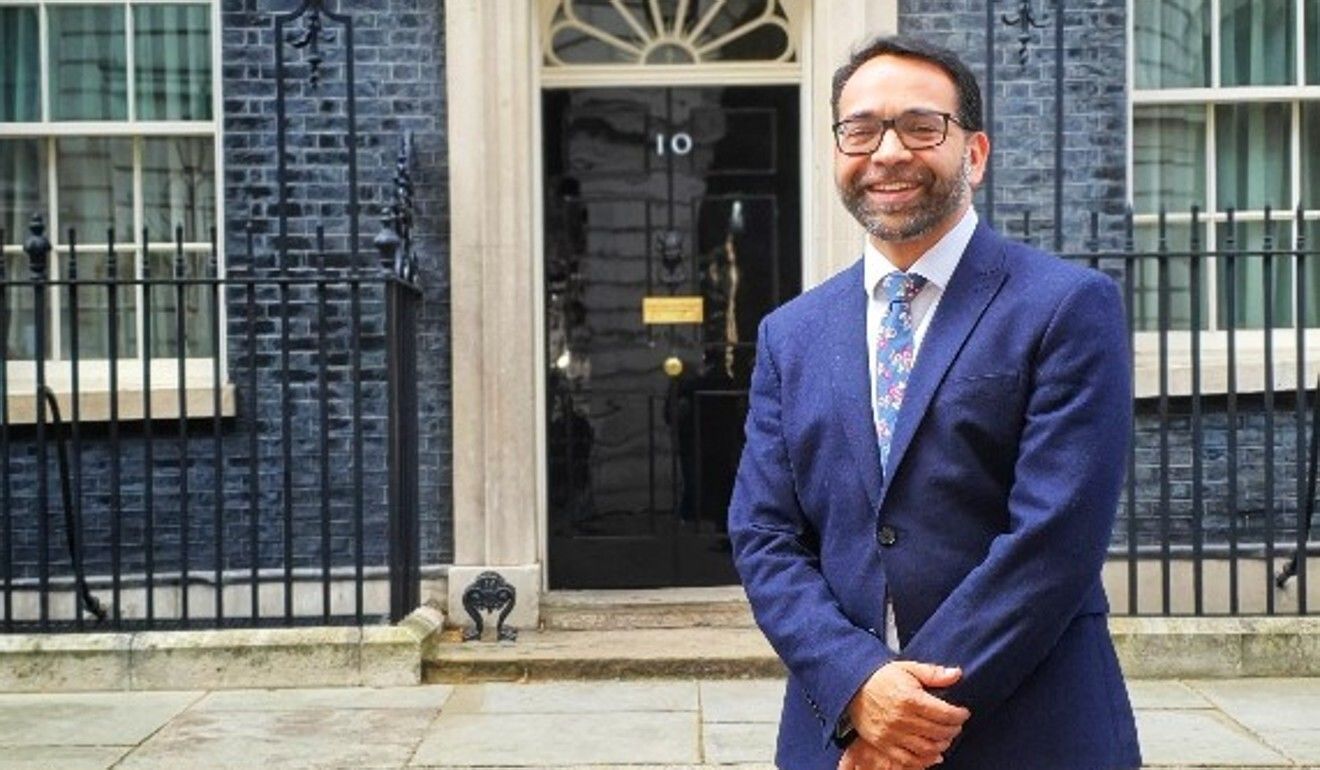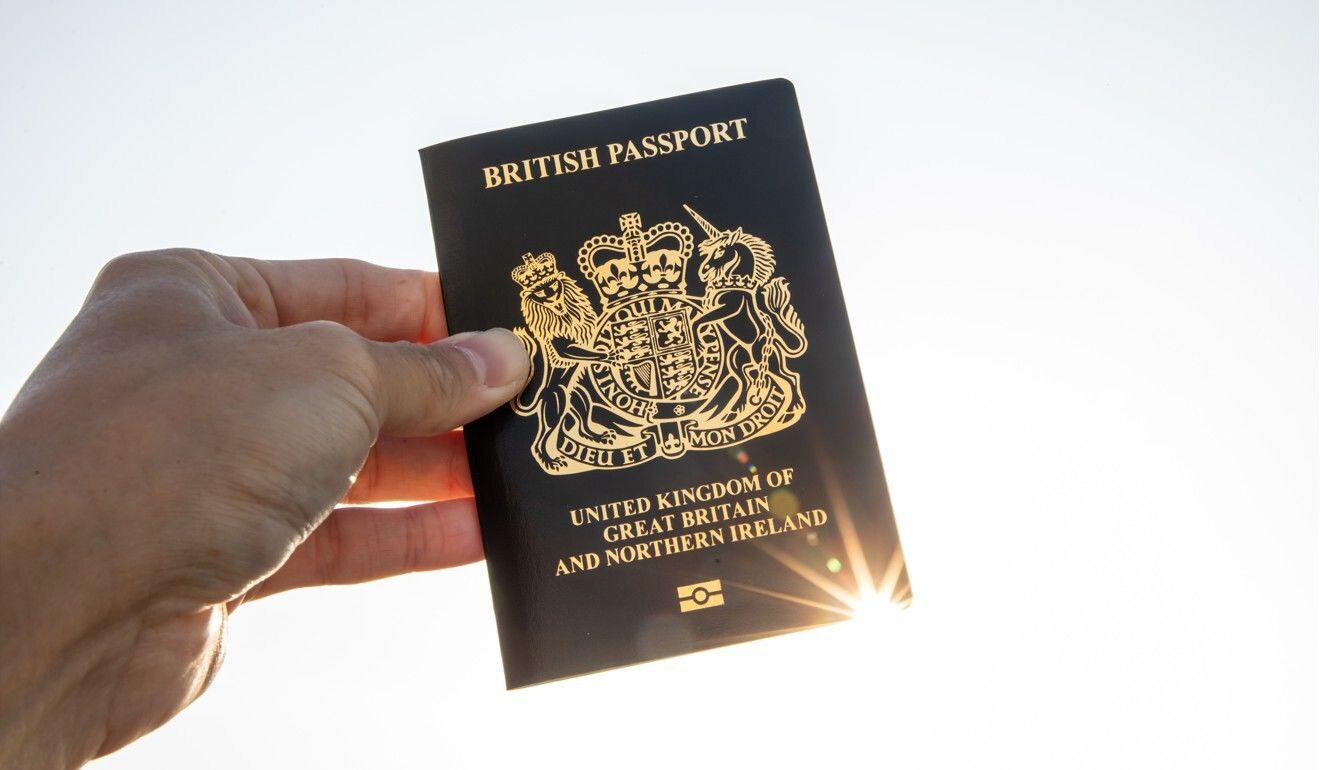
Boris Johnson meets Hong Kong BN(O) families who moved to Britain
British Prime Minister Boris Johnson spoke on Friday to four Hong Kong families who moved to the country on a special visa for people with British National (Overseas) status, as the UK government revealed that it had received a total of 27,000 applications since the scheme was launched at the end of January.
Speaking via video conferencing, Johnson and the families discussed why they left Hong Kong and their experiences since arriving in Britain.
“On behalf of the whole country I want to say how glad we are to have you here and how proud we are that you have chosen the UK to live,” the prime minister said on the call.
“I believe strongly in the prospects the UK can offer for those who want to make their lives here and I have no doubt that you are going to feel very much at home.”
Johnson said the BN(O) visa scheme reflected Britain’s “historic and moral commitment” to the people of Hong Kong.
“The UK has a long and proud history of embracing those who arrive on our shores seeking the inalienable rights and freedoms denied to them in their homeland. I am very proud that we have been able to make this offer to you and other British Nationals (Overseas),” he said.
The 30-minute conversation was “very positive and full of gratitude”, said Krish Kandiah, who facilitated the meeting. Kandiah is the founder of UKHK.org, a charity supporting Hongkongers in Britain.
“Everyone expressed individually a great sense of thankfulness to the government for opening this route. The prime minister is very welcoming and congratulated them for coming here,” he added.
Kandiah said the families told the prime minister that with the city undergoing major changes, the Hong Kong they left “was not the one they knew”.
Johnson heard about some of the challenges that the new arrivals were facing in Britain, particularly on the job market.
“We have a GP, an architect and a teacher. Currently, none of their qualifications is recognised in the UK. They are either trying to get recognised or applying for jobs in other fields,” Kandiah said.
“The prime minister showed a lot of passion trying to find ways to help their qualifications to be recognised. He was hearing their needs and he was very receptive. His team is going to explore what could be done.”
Some parents also expressed concern about their children’s passport status. Those born after 1997 do not have BN(O) status and hold only Hong Kong passports, which will expire within five years.
 Krish Kandiah, founder of UKHK.org, stands outside 10 Downing Street in London.
Krish Kandiah, founder of UKHK.org, stands outside 10 Downing Street in London.
The meeting on Friday coincided with high-level talks in Alaska between the US Secretary of State Antony Blinken and US National Security Adviser Jake Sullivan and China’s top diplomats, Yang Jiechi and Wang Yi.
Blinken said that the release of update to the Hong Kong Autonomy Act report underscored Washington’s “deep concern” over Beijing’s decision to “unilaterally undermine” the city’s electoral system.
The action further undermined the high degree of autonomy promised to people in Hong Kong and denied Hongkongers a voice in their own governance, a move that Britain had declared to be in breach of the Sino-British Joint Declaration, Blinken said.
Ahead of the meeting in Alaska, Washington sanctioned 24 Hong Kong and mainland Chinese officials over a planned electoral overhaul in the financial hub. According to Blinken, the individuals “have reduced Hong Kong’s high degree of autonomy”.
Britain introduced the new visa last July in response to Beijing’s imposition of a national security law on its former colony, an act London described as a breach of the 1984 Sino-British Joint Declaration, the agreement that paved the way for the city’s handover in 1997.
Up to 5.4 million Hongkongers are eligible under the programme, including holders of BN(O) status and their dependants, to stay in the country for up to five years, with the right to work and study, and to apply for citizenship after six years.
 Up to 5.4 million Hongkongers are eligible for the scheme.
Up to 5.4 million Hongkongers are eligible for the scheme.
Britain’s Home Office issued a policy impact assessment last October, estimating between 123,000 and 153,000 BN(O)s and their dependants could take up the route in its first year, with between 258,000 and 322,000 over five years.
Before the scheme started, Britain granted Leave Outside the Rules (LOTR) status to arriving Hongkongers with BN(O) status and their dependants, allowing them to remain and work in the country for six months, but with no access to public funds.
That scheme will remain in place until March 31.
Between July 15 and February 16, about 9,000 BN(O) holders and their dependants were granted LOTR status.










